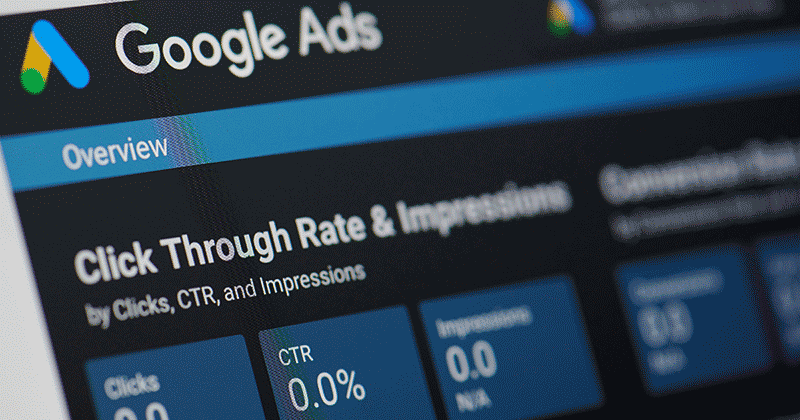Congress To Regulate Online Ads; Tomorrow SEO?
I don’t know about you but I’m getting totally sucked in to Congress’ recent interest in Web privacy. In case you haven’t been following, on August 1, the House Committee on Energy and Commerce sent letters ordering 33 cable and Internet companies, including some of your favorite search engines, to explain their privacy standards and what information they’re collecting from users for monitoring purposes.
And now that the results are coming in, we’re all gathered around in fear waiting for someone to come and pick poor Congress off the floor. I think its head just exploded. IT seems online advertising isn’t made up of as many unicorns, bunnies and rainbows as Congress initially thought.
Seriously, Congress seems just a bit too surprised with the information being reported, deciding that it’s time for some rules and regulations to be applied to Web advertising. Edward J. Markey went as far as to say he would like to introduce an online-privacy Bill of Rights some time next year that would require companies to include an opt-in tracking policy that explained what information they were collecting and how it would be used.
Amen and hallelujah!
So what is Congress all worked up about?
Well, they didn’t seem to like that companies like broadband providers Cable One and Knowlogy admitted to using deep-packet inspection in trials without first informing users. They also didn’t seem to be aware that the reasoning behind Google’s DoubleClick acquisition was so that they could track users with the hopes of serving better ads. Methinks Congress should start reading Search Engine Land, with a dash of our Friday Recaps.
In Google’s letter to Congress, they admitted that had been doing some testing with DoubleClick recently, knowing that Congress likely read Google’s recent blog post touting that they can see the number of people who have seen an ad campaign and how many users visited their sites after seeing an ad. However, they tried to clean off their halo by being adamant that they do NOT use deep-packet inspection like some of those other bad companies do.
Well, of course you don’t Google. You don’t have to because you already know more about Web users than anyone else in the world. You’re the biggest search engine on the Web, getting information from Google Analytics, AdSense, and a host of other services. You don’t get an (edible) cookie when you have that entire data treasure chest to work from.
I’m glad to see Congress getting more involved with online advertising practices, maybe it’ll wake companies up that at least some body of law is watching. If you’re going to use behavioral targeting, make sure you’re upfront about it and that you make it easy for users to opt-out if they don’t want it. When companies don’t do that and make it difficult for consumers to know what information is being tracked, it sours everything. Interestingly, according to the Washington Post article, some small businesses claim that if Congress institutes a law making opt-in a requirement for targeting it will hurt their ability to learn about their customers. Please, people! Find another way than being deceitful. That argument sounds nothing more than a child angry that his father is taking away toys he shouldn’t have been playing with in the first place.
As interesting as it is to watch Congress get up in Google’s face, I think the reason I’m so enthralled in this whole fight is because I’m looking bigger. It’s an excellent example of what happens when an industry doesn’t set standards for itself and goes unregulated for too long. In case you didn’t get the memo, search engine optimization is also a form of online advertising. We’re looking at our future here. You can fight that SEO doesn’t need standards and that you don’t want someone telling you how to optimize a Web site, but it’s coming. SEO is advertising and advertising needs to be regulated, just like Google and the others are finding out now. If we’re not proactive about outlining what we do, it’s not going to be long before Congress comes knocking and does the same thing to us that they’re doing to Google. Enjoy your wild west of spamming now.
26,000+ professionals, marketers and SEOs read the Bruce Clay Blog
Subscribe now for free to get:
- Expert SEO insights from the "Father of SEO."
- Proven SEO strategies to optimize website performance.
- SEO advice to earn more website traffic, higher search ranking and increased revenue.

6 Replies to “Congress To Regulate Online Ads; Tomorrow SEO?”
Sorry but anyone who would be dubbed qualified to be an organizing regulating body for SEO is an albatross (looks squarely in the direction of SEMPO). They have been around for years and have done zero, I have never heard 1 client ever mention them.
I’ve watched a little of this unfold as well. I’m lovin every second of it. It’s about damn time.
Lisa; Your opinion of this stuff is almost word for word of mine. Your conclusion is certainly 100% of mine.
graywolf; SEMPO? What the hell is that anyway? Some kind of disease? :D If anyone had a thought they were going to be some kind of org who spoke for the entire industry, they were gravely mistaken. Heck; take a gander at some of the names who bought their way into the org. That says a bunch. It’s not a group of our industry anyway. Most members have zero to do with it.
Congress in now involved with things. Believe me; right or wrong, they will get involved with SEO as well as it sure is a form of advertising. What else could it be?…
Not sure I agree with thesis that seo is the same as advertising – can you explain why in that case why is not web development regulated in the same way.
and I suspect that this will go know where one the lobbying of the big Telco’s kicks in.
You also need to give the non USA people a heads up on who’s these guys Players or Backbenchers (in the UK parlance who will say anything for a bit of publicity)
Sorry but anyone who would be dubbed qualified to be an organizing regulating body for SEO is an albatross (looks squarely in the direction of SEMPO). They have been around for years and have done zero, I have never heard 1 client ever mention them.
Force me to be regulated I’ll go renegade.
Love your conclusion, it’s funny and it’s true.
It’ll be interesting to see how this all pans out. As long as behavioral targeting doesn’t get too personal then I’m all for it, just my opinion though. :)
Trying to explain the tech world to Congress is like trying to teach a cat how to bark. It’s just not the right mix… it will be interesting nonetheless what kind of input they will ultimately have on the subject and what kind of moves they may make to better “protect” the internet users of America.
LEAVE A REPLY









